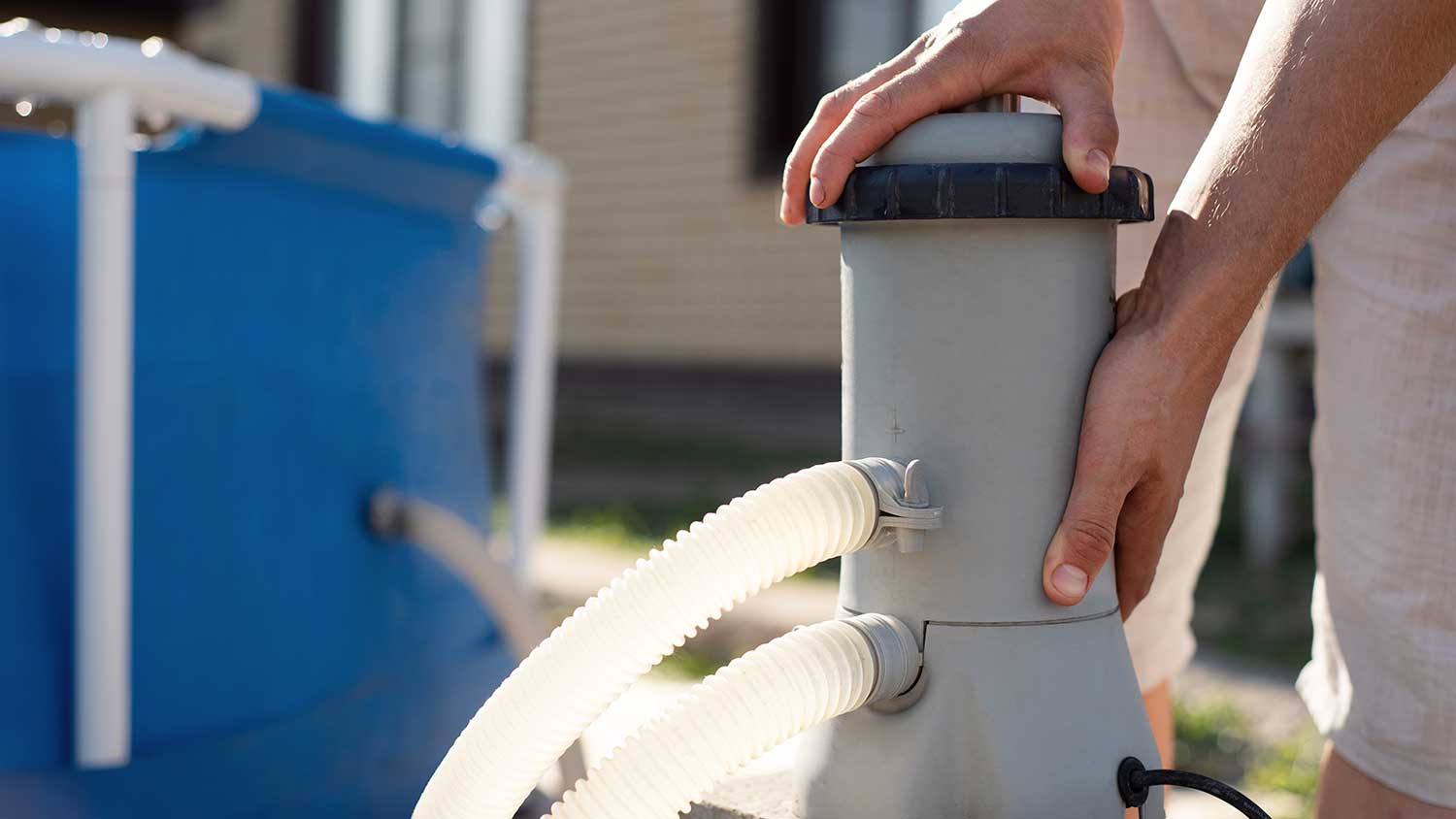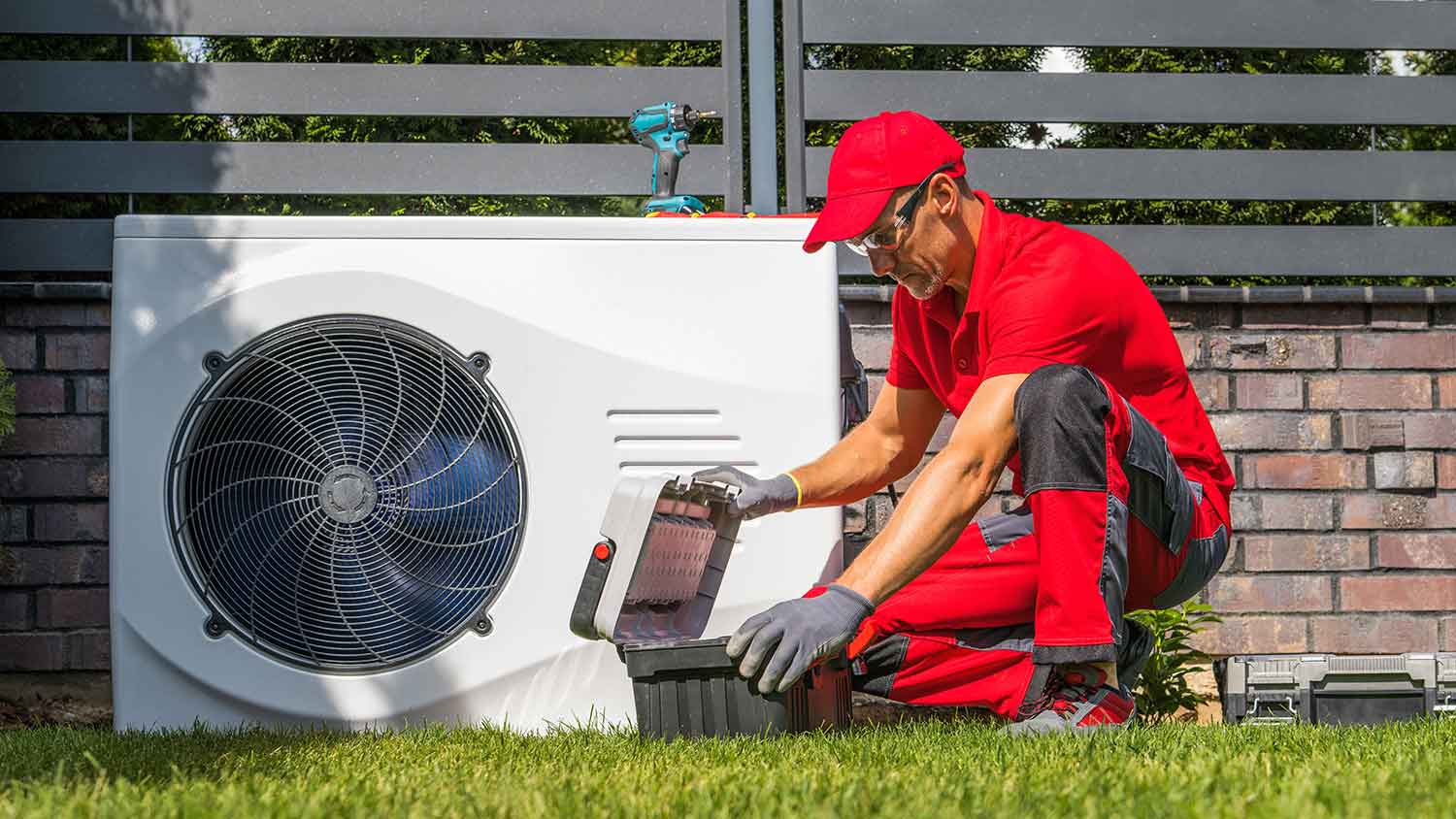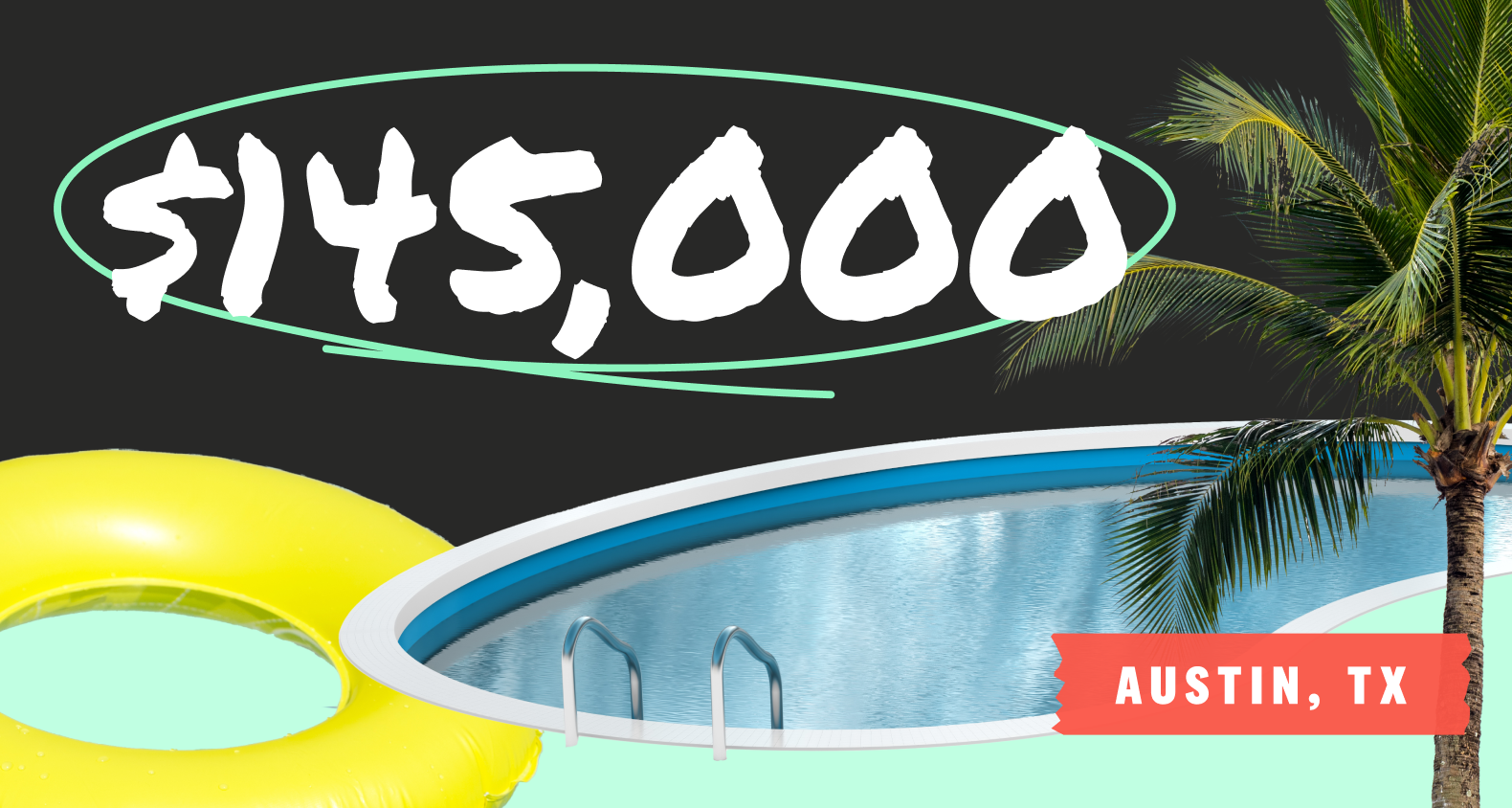Pool Heater Replacement: Everything You Need to Know
Say goodbye to freezing pool temps and fix that heater


Instead of enjoying a nice swim, you jump out of the pool because you can't stop shivering. It may be time for a pool heater replacement, or perhaps you can get a repair. Don’t let pool heater woes get you down. Here are the most important things to consider when deciding whether to repair your unit or replace it.
4 Most Common Pool Heater Problems
There’s nothing as disappointing as heating your pool to take a swim—and realizing the pool water is as cold as ever. Here are the most common pool heater problems to look out for.
1. Noisy Pool Heater
If you notice your pool heater is making grating or grinding sounds, there’s a good chance there’s debris inside the unit. You might do a manual flush and check the hoses for blockages.
It may also be a pressure switch problem, which you can diagnose by checking to see if the heater is still on after the pump turns off. You may be able to resolve this issue with a new pressure switch.
If you hear whistling sounds coming from your pool heater, it could be due to low gas pressure, which you can fix by turning your gas valve.
2. Pool Heater Won’t Turn On

There are many possible reasons your pool heater isn’t turning on. The best-case scenario is an easy fix, like cleaning a clogged pool filter, cleaning a dirty pump, or opening a plumbing valve. Otherwise, it might be a disabled safety switch, damaged electrical connections, or dirty heat exchangers.
If your heater isn’t turning on after you first installed it, check your pump specs and ensure it’s powerful enough for your pool and heater. If you don’t have a variable-speed pool pump, it may be a good time to buy one. Furthermore, there’s a chance rodents took up residence in your heater. They can leave a huge mess and even chew through wires.
3. Pool Heater Turns Off
If your pool heater turns on and off repeatedly, clean your cartridge filter or backwash your DE filter. Keeping up a solid DIY pool maintenance schedule can avoid a dirty or clogged filter.
When your pool heater turns off after just a few seconds, you may have ignition control problems or a dirty flame sensor with corrosion or carbon buildup.
Faulty thermal regulators and clogged water jets can also cause heaters to turn off before the water reaches the desired temperature. Additionally, pool heaters can turn off unexpectedly because of dirty filters and pumps.
4. Inadequate Pool Heating
Culprits for poor pool heater efficiency include a dirty pool filter or a heater that’s simply too small for the size of your pool. Don’t forget to check your pump, which pump might be too weak, and you may need to find the right-sized pool heater for you.
Signs It’s Time to Replace Your Pool Heater vs. Repair
When your pool heater stops working, you’ll need to decide if you’re going to repair it, or if you’re going to get a replacement. Here are some signs to help you discern which is the best route to take.
The first thing you should consider is the life span and warranty of your heater. The life span varies depending on the heater type:
Gas: 5–10 years
Electric: 5–10 years
Solar: 20–25 years
Check your paperwork for warranty information; these typically last for 1 to 5 years. If your warranty is in effect, it’s a newer unit, so it’s probably best to repair it. On the other hand, if your unit is nearing the end of its life span and is out of warranty, you should consider a replacement.
The second consideration is if the damage is beyond typical repairs. This might be the case if there’s too much rust and corrosion in the interior of the unit or if your heater has multiple components that are failing at the same time.
Another serious problem is if your heater has a severe fluid leak. These leaks can cost several thousand dollars to fix, in which case you’re better off buying a replacement.
Types of Swimming Pool Heaters
Different types of pool heaters use different fuel sources. You might choose one based on which fuel lines you already have running to your pool or the utility costs you can expect to pay.
Electric
Electric pool heaters work best for smaller pools. They’re less costly to buy upfront compared to other options and cost less to run than gas heaters. You can expect to spend around $100 to $200 per month on utility bills.
Gas
Gas heaters are the most commonly used, as people can easily hook them up to their natural gas lines or a propane tank. These heaters can heat pools quickly, although the ongoing costs can be quite high, especially if you opt for propane. You can expect to pay $200 to $400 per month to run these heaters.
Solar
These heaters are the most expensive type to install, but there are many benefits of solar pool heaters. There are no ongoing electric bills; they’re energy-efficient and require little maintenance.
Heat Pumps

Heat pumps are a type of electric heater that extracts heat from the air. You can opt for models with heat and cooling capabilities that can help you extend your swimming season. Generally speaking, heat pump heaters are low maintenance and more energy efficient than gas modes. Keep in mind that these heaters only work when air temperatures are at least 50 to 55 degrees.
Cost to Repair vs. Replace a Pool Heater
On average, pool heater repair costs $460, but it can go as low as $160 or as high as $760. Moreover, repair prices vary depending on the type of heater you have. You can expect to spend $200 to $1,200 for electric heaters, $150 to $750 for natural gas heaters, and $50 to $400 for solar heaters for repairs.
Pool heater replacement costs are about $1,500 to $4,000 for the unit and $300 to $1,000 for labor. Installing a replacement is substantially more affordable than the cost of installing a new pool heater for the first time. This is because you don’t have to worry about running utility lines or installing new electrical wiring.
Should You Repair or Replace Your Pool Heater?
If you hire a pool heater service near you, your pro can tell you if it’s possible to repair the unit. If so, it’s likely the most cost-effective option. However, if your heater is nearing the end of its life span, it may make sense to put your money towards a replacement instead.
If your heater is too weak to power your pool, then your only option will be to buy a new unit. Remember, the best time to buy a pool heater is often in the spring or fall.





- Swimming Pool Installation
- Pool Liner Replace & Install Companies
- Above Ground Pool Contractors
- Pool Remodeling Companies
- Inground Pool Companies
- Pool Removal Companies
- Inground Pool Repair Companies
- Sauna Companies
- Hot Tub Companies
- Sauna Repair
- Fiberglass Pools
- Pool Designers
- Pool Pump Repair
- Pool Closing Services
- Solar Pool Heater Installers










